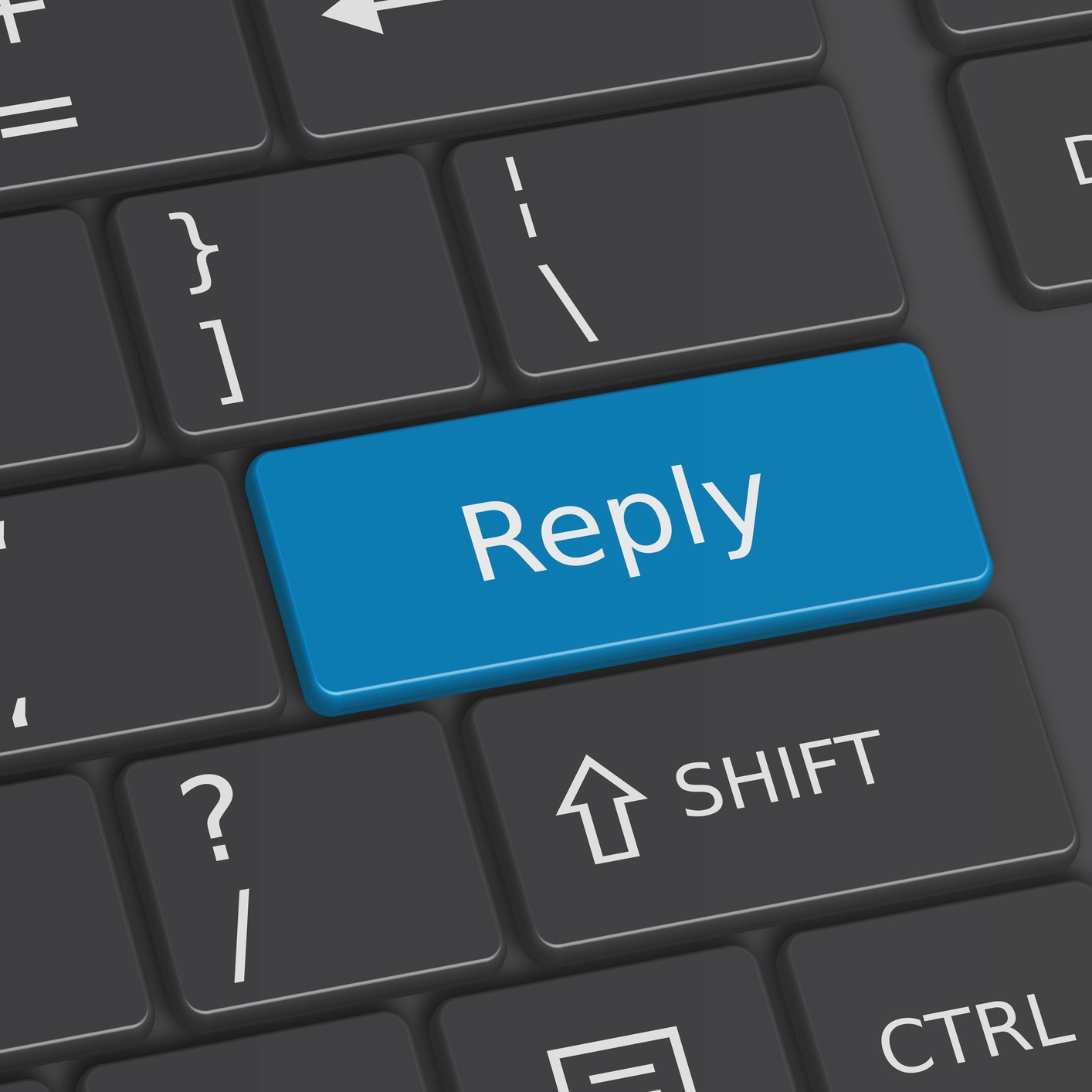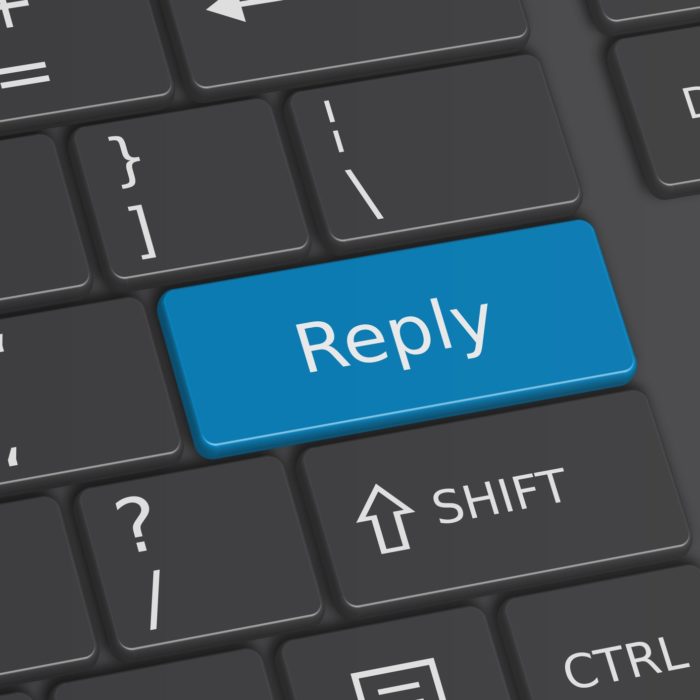

The #1 Way To Stand Out In An Inbox
Before I begin this post, I want to say something up front:
I get a lot fewer emails running my own business than I did when I was in corporate life.
(That’s only to be expected having changed from hundreds of colleagues to just one.) So everything I’m about to say is with the full acceptance that you might not be in the same boat as me. However, even when I was in corporate life, all of what I’m about to say held true.
There’s a recurring theme in my inbox.
I noticed it the other day when I received an inquiry via my website, which I replied to immediately and got the following response:
 I thought to myself, “Well, yes, it was a prompt reply, but I don’t suppose it’s out of the ordinary.” But then I remembered other instances where I’d received similar responses – even when my reply had been a few hours later (though never more than 24 hours):
I thought to myself, “Well, yes, it was a prompt reply, but I don’t suppose it’s out of the ordinary.” But then I remembered other instances where I’d received similar responses – even when my reply had been a few hours later (though never more than 24 hours):

And this one:![]()
I even noticed a couple thanking me for simply responding:

And this one:![]()
And it got me wondering…
Is what I’m doing simply what everyone else does? I’ve written before about courtesy being huge for me, so it seems like no big deal. Or has the act of responding to someone’s email in a timely fashion (or even at all) become an exception to the norm?
And if the latter is the case – and I suspect it is, following a straw poll of my contacts – it would follow that:
The #1 way stand out in people’s inboxes is as simple as hitting ‘Reply’ to their emails.
Even if your response is to say you’re busy and you’ll get back to them with a more detailed answer at a later date, it’s going a long way to improve the sender’s perception of your personal brand.
Add to that the fact that so many other of their emails will go unanswered and the effect is amplified. (Plus consider whether, if you’re one of those non-responders, how that might be affecting people’s perceptions of you.)
Who knows…you may well find you’re receiving responses that begin the same as the ones above!
What’s your view of replying to emails? Do you make replying in a timely manner part of your brand (and if so, what reaction do you get?) Or does the sheer weight of emails hitting your inbox make that an impossibility? I’m pretty sure this’ll split people’s opinions, so let me know what side of the fence you sit on with a comment below. Thank you!







This is definitely a Marmite topic! I agree with you on prompt responses, but you don’t address my biggest dilemma which is:
When to “reply all” and when to reply only to the sender. the latter becomes a problem when everyone else “replies all” but you haven’t. Then it looks as though you haven’t replied at all!
That’s a very good point Nicola. It’s something I’ve wondered about myself.
If it helps, here’s what I do:
If the reply is purely to acknowledge receipt of the email (like agreeing to the time of a meeting) I reply to the sender only. That way everyone else avoids an extra email in their inbox.
There’s a chance I might be seen by others as not replying, but the important person, ie the sender, is covered.
However, if my response will be adding to the conversation and worth others knowing, I’ll reply all.
Hope that’s helpful.
I agree with the underlying concept but there is a danger of being less effective in the workplace if work is interrupted every time an email comes in.
So would an automatic reply thanking the sender for the email with a message that a full reply will be sent within x hours / days?
You’re right that emails can interrupt your flow of work and I’m not saying everything needs an immediate answer. It’s when days go by with no response that a negative aspect can be associated with your brand.
I’ve seen people use an automatic reply very successfully though, saying they only address their emails once or twice a day.
My husband and I have discussed the lack of email response by people. They do not wish to acknowledge an email, and so the sender must assume there is no interest because the communication is being ignored.
It’s a bit frustrating especially with people being “glued” to technology. There is no courtesy extended a reply, even if it’s “I’m not interested or no thank you”.
I believe a reply is appropriate (unless it’s clearly junk mail) and have responded with a “thank you, I appreciate your email but I’m not interested or please remove from distribution” to close the thread to be considerate of the attempt to connect.
Hi Jennifer,
I’m a huge fan of your blog, apologies for the delay in responding.
The misuse of e mail as a communication medium is something I come across almost every day – and it’s the source of more misunderstanding and “fall outs” than I have time to list, or your followers have time to read.
Some tips I’ve found helpful though are –
– Label the subject matter box with a quick, concise, instruction of what the content requires of the recipient – e.g RSVP by…., Read / Information only, etc
– If the content runs to more than 150 words it not an e mail – it’s a phone call or a face to face (if that’s not practical, create an attachment that is subject specific)
– on the vexed question of the “CC” ask ourselves “what my INTENT behind copying in this recipient and what will be the impact on the addressee
Overall it’s worth remembering that only 7% of the effectiveness of how we communicate is attributable to the words we use. 38% is attributable to our tone and 55% to our body language and facial expression , so ……… do we really want to diminish the effect of our communication by 93% ?
Great post – thanks for the content, it’s appreciated,
Cameron
That’s all great advice Cameron. I like the one about labeling the subject box with a call to action.
[…] be clear: I don’t mean you shouldn’t reply at all. Disappearing completely from people’s inboxes won’t do your personal brand much […]